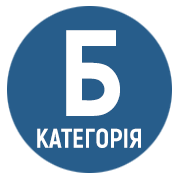GLOBALIZATION OF EDUCATIONS PROCESSES: WARNINGS AND CHALLENGES
DOI:
https://doi.org/10.24919/2522-4700.43.1Keywords:
globalization, education, humanization, educational tendencies, skills, content of educationAbstract
The purpose of the article is to analyze globalization processes taking place today in education and identify their positive and negative features. The elements of the educational process, which in order to improve the educational process are actively introduced in the new Ukrainian school today and are essentially the instruments that contribute to globalization in education are analyzed. The methodological basis of the study is the use of an analytical approach. This approach allows us to consider in a reflexive-critical way the essence of those phenomena and changes that are observed in the activities of the individual, and in the social life of today. Scientific novelty. The article deals with learning as a process that should always combine both conservative and the latest methods. Conclusions. Modern education should take into account modern globalization trends and at the same time new requirements for a person in the form of analytical and critical thinking, cognitive flexibility, creativity in solving tasks, self-discipline, initiative, communication, media literacy skills and ability to reorientate rapidly. Analyzing the latest trends in the education system, you can see an increase in criticism of the classical educational system. As often indicate the authors, the analysis of the crisis of education led to awareness of the need to develop a new educational paradigm directed, first of all, to the development of spirituality and creative essence of man. Only innovative education can cope with this task, the main purpose of which – the preservation and development of human creative potential. And according to many modern education researchers, our schools have not been too changed over the last decades. And most critics agree that the current education system has many disadvantages and problems, because it was developed in an industrial era, that is, created mainly in order to “stamp” workers for the industrial industry. And so far, the mentality of mass production and total control is still very common in our schools. Therefore, criticizing and changing the classical training model has become extremely fashionable today. But in domestic realities, modern learning methods work only in conjunction with conservative.
References
Бенедикт Р. Образы культуры. Бенедикт Р. Человек и социокультурная среда. Москва : Культура, 1992. Вып. 2. 342 с.
Бех І.Д. Принципи сучасної освіти. Педагогіка і психологія. 1999. № 4 (49). С. 5–27.
Зеліско Л.І. Культурологічна освіта майбутнього юриста. Івано-Франківськ : Вид-во Прикарпат. нац. ун-та ім. В. Стефаника, 2010. 233 с.
Зеленська О.П. Педагогіка формування особистості у вищій і загальноосвітній школах. URL: file:///C:/Users/PC-ROOT/AppData/Local/Temp/Pfto_2013_29_34-1.pdf (дата звернення: 31.08.2021).
Круглов В. П’ять проблем шкільної системи. URL: https://osvita.ua/blogs/65573/ (дата звернення: 11.08.2021).
Чкаловська Г.З. Ефективність функціонування ринку освітніх послуг в Україні: проблеми та перспективи. Сталий розвиток економіки. 2012. № 3. С. 59–64.
Ящук Т.А. Ринок освітніх послуг: сутність та тенденції розвитку. Інноваційна економіка. 2013. № 8. С. 246–249.
Marginson S. After globalization: Emerging politics of education. Journal of Education Policy. 1999. № 14 (1). Р. 19–31.
Stiglitz J.E. Towards a new paradigm for development. Strategies, policies and processes Geneva. 1998. UNCTAD. URL: http://web.worldbank.org/WBSITE/EXTERNAL/NEWS/0,,contentMDK:20025537menuPK:34474~pagePK:34370~piPK:34424~theSitePK:4607,00.html#sect2 (дата звернення: 31.08.2021).


